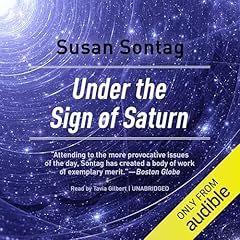
Reborn
Journals and Notebooks, 1947-1963
No se pudo agregar al carrito
Add to Cart failed.
Error al Agregar a Lista de Deseos.
Error al eliminar de la lista de deseos.
Error al añadir a tu biblioteca
Error al seguir el podcast
Error al dejar de seguir el podcast
 Exclusivo para miembros Prime: ¿Nuevo en Audible? Obtén 2 audiolibros gratis con tu prueba.
Exclusivo para miembros Prime: ¿Nuevo en Audible? Obtén 2 audiolibros gratis con tu prueba.Compra ahora por $19.32
-
Narrado por:
-
Jennifer Van Dyck
-
De:
-
Susan Sontag
"I intend to do everything...I shall anticipate pleasure everywhere and find it too, for it is everywhere! I shall involve myself wholly...everything matters!" This first selection from Susan Sontag's diaries (from 1947-1963) takes us from early adolescence through to when Sontag was in her early 30s. It is an astonishingly affecting and honest self-portrait which is also a fascinating, revealing account of an artist and critic being born. We see Sontag honing her skills and fashioning herself, by a supreme act of will, into an intellectual force.
©2008 The Estate of Susan Sontag (P)2013 Audible, Inc.Los oyentes también disfrutaron:




















Las personas que vieron esto también vieron:


You are in the right place
Se ha producido un error. Vuelve a intentarlo dentro de unos minutos.
Performed well. But...
Se ha producido un error. Vuelve a intentarlo dentro de unos minutos.
Excellent Narrator
Se ha producido un error. Vuelve a intentarlo dentro de unos minutos.


